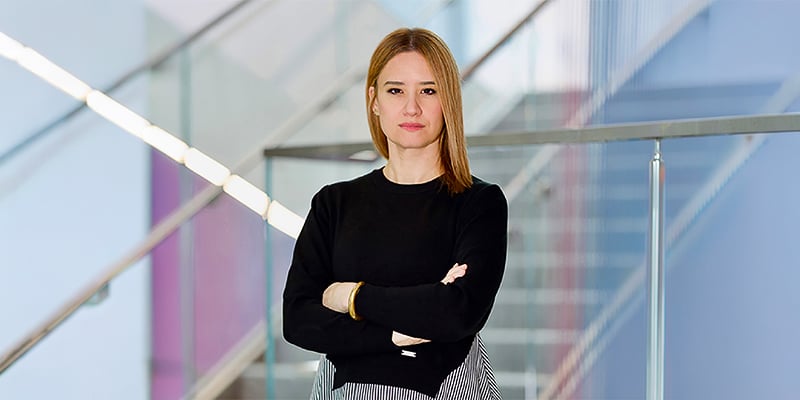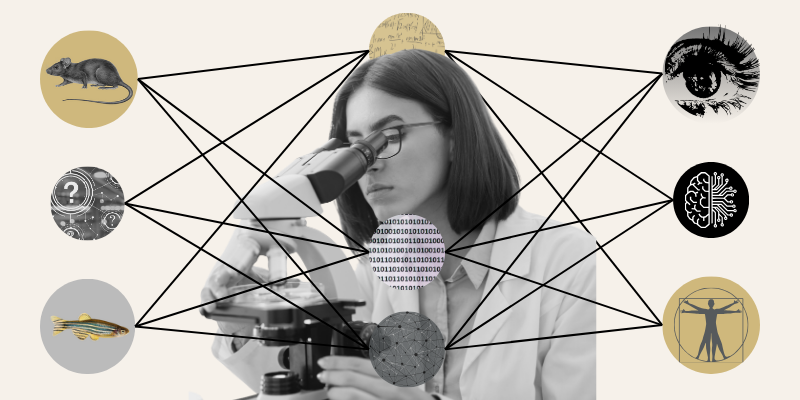Hayley Wolff is set to celebrate a major milestone—graduating from the Human Medical Genetics and Genomics PhD Program on Saturday, Dec. 14! After four years of hard work, late nights, and groundbreaking research, she’s ready to walk across the stage and mark the culmination of her incredible journey that began in 2020. This graduation isn’t just an academic achievement; it’s a testament to her dedication, innovation, and passion for pushing the boundaries of genomic science.
Turning genomic data into game-changing insights
 Throughout her doctoral journey, Wolff has been at the forefront of developing statistical methods and software to improve the utility and equity of summary-level genomic data. Her work has had a significant impact, including the creation of new statistical techniques for detecting local substructures using only allele frequency data. She also developed the R package CCAFE, which estimates case and control allele frequencies from GWAS summary statistics to enable secondary analyses using these data.
Throughout her doctoral journey, Wolff has been at the forefront of developing statistical methods and software to improve the utility and equity of summary-level genomic data. Her work has had a significant impact, including the creation of new statistical techniques for detecting local substructures using only allele frequency data. She also developed the R package CCAFE, which estimates case and control allele frequencies from GWAS summary statistics to enable secondary analyses using these data.
Her research tackled pressing challenges in the field, including the underutilization of vast genomic datasets—literally thousands of gigabytes’ worth. One major issue she addressed is substructure detection, which can be masked when summarizing genomic data. Another challenge her work confronts is the variability in how summary statistics are reported and formatted. By enabling the estimation of often missing statistics, her work enhances the reusability of these data.
The methods and software Wolff developed lay the groundwork for more inclusive genomic research, allowing for better substructure estimation, adjustment, and secondary analysis with existing data. As she prepares for graduation, genomic research’s future looks brighter— thanks to pioneers like her.

What skills did you develop during your program that will be valuable in your future career?
I improved and developed skills in statistical programming and software development, statistical method development, project management, mentoring, scientific writing and presentation, and data visualization.
Did you face any challenges related to work-life balance, and how did you manage those?
Doing a PhD is the ultimate test of managing work-life balance. Having a mentor who also prioritizes mental health and work-life balance helps immensely. I always prioritized my work-life balance because I knew that without my outside activities, I would burn out, and my work and productivity would ultimately suffer. My life motto is "find the fun" - I think it applies here.
What is next for you?
I'm applying for jobs (in data analysis and biostatistics) primarily outside of academia. While I appreciate a lot about academia, I am excited about the prospect of doing work that is closer to patient outcomes.
What was the most valuable lesson you learned during your program?
The most valuable lesson I learned is that no one else can prioritize and push forward your work but you.
What advice would you give prospective students?
Know what you want to get from your time in the program and actively pursue it. Get some hobbies or risk going crazy. There are lots of ups and downs, but everyone is rooting for your success; just find the people you need for support.



.png)
